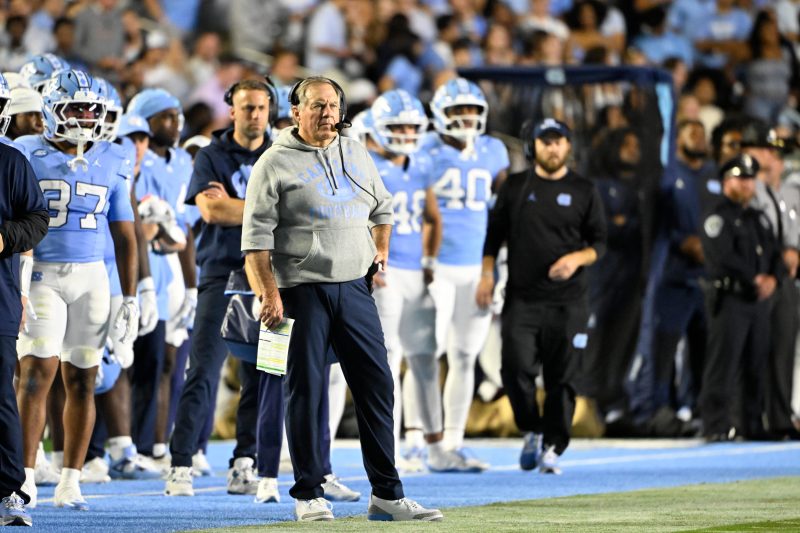
Lawsuit claims UNC violated laws in Belichick hiring, expansion talks
A lawsuit filed this week by a former University of North Carolina administrator accuses the university’s board of trustees of violating state open meetings laws on issues that include the hiring of football coach Bill Belichick and deliberations over conference realignment.
The board of trustees “has engaged in pattern and practice of systematically violating the Open Meetings Law by improperly invoking closed session exemptions to shield policy and budget deliberations from public scrutiny,” read the suit filed on behalf of former North Carolina Provost Chris Clemens, who held the title from 2021 through last April.
Clemens’ suit cites the example of the board’s deliberations over Belichick’s surprise hiring last December. According to the suit, the board “called an ‘emergency meeting’ with minimal notice” and then went into closed session to discuss the terms of the contract for Belichick and his coaching staff, which includes two of his sons.
The board “did not present any comparable thirty-year ‘net present cost’ analysis, nor did it invoke long-horizon fiscal restraint to defer that decision for a single UNC employee.”
“The perfunctory nature of the open session demonstrates that substantive deliberation occurred unlawfully in secret.”
The former New England Patriots coach signed a five-year deal worth $50 million.
In addition, the suit alleges the board used similar closed-door deliberations to review realignment opportunities in November 2023 and May 2024.
In the November meeting, the board entered a closed session to discuss “the financial implications of potential moves to the SEC or Big Ten.” In May, the group sat in closed session “to discuss conference realignment strategy and athletics department finances.”
“These discussions of institutional affiliation and departmental budget strategy are policy matters that must be conducted in open session,” the suit reads.
Members of the board also used auto-deleting messaging services such as Signal “to evade records retention and public inspection,” according to the suit.
Groups such as the board of trustees are beholden to North Carolina’s Open Meetings Law, which states that “the hearings, deliberations, and actions of these bodies be conducted openly.”
In his suit, Clemens said university officials asked him to resign after he raised concerns over tenure discussions conducted in closed session.
